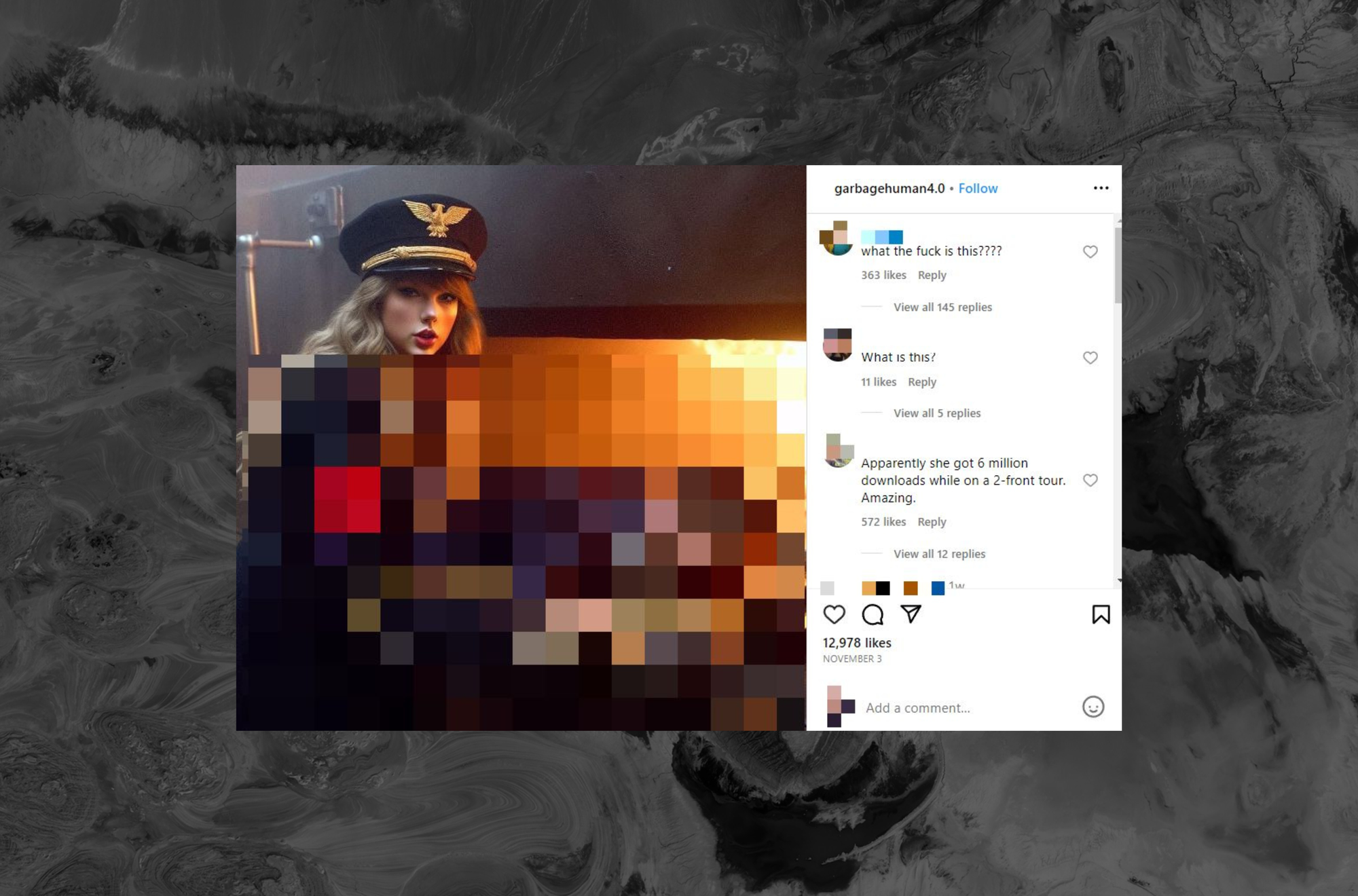The internet is uprooted over a scandal involving artificial intelligence (AI) images of pop star Taylor Swift. These explicit images show Swift in sexual poses and scenarios. They have been widely shared on social media platforms, causing anger and criticism from fans, celebrities, and authorities. People are asking where these images came from, why they were made, and what effect they will have.
Zubear Abdi, also known as ZvBear, is the main suspect who made the images. He is 27 years old and a citizen of Somalia living in Ontario, Canada. ZvBear is a popular online personality with over 82.7K Followers on his X account. He often posts funny and controversial things, including pictures of celebrities and references to pop culture. People say he used AI tools to change images of famous people like Beyoncé, Kim Kardashian, and Barack Obama.

ZvBear admitted on January 24, 2024, in a tweet that he created the Taylor Swift images. He said he did it as a “joke” and apologized for the harm he caused. He also claimed that he wasn’t the only one to make such images and that he got the idea from a Telegram group that promotes making nonconsensual porn using the Microsoft Designer image generator.
404 Media, an online investigative journalism outlet, says that the Telegram channel is a secret group with over 10,000 members. These members share and ask for AI-generated pornographic images of famous people, politicians, and regular people. 404 Media also claims the channel members might have helped create the Taylor Swift images. They did this by joking about her fame and popularity and challenging each other to make the most realistic and shocking content.

Microsoft CEO Satya Nadella strongly criticized the spread of Taylor Swift images, calling it “alarming and terrible.” He expressed sympathy and support for the singer. Nadella stated that Microsoft is collaborating with law enforcement and other platforms to find and delete the images and stop the misuse of its AI technology. He affirmed Microsoft’s dedication to using AI ethically and responsibly and safeguarding its users’ privacy and dignity.
X and other platforms like Facebook and Instagram have quickly removed the Taylor Swift images. They say the photos go against their rules about fake and altered media and also show nudity without consent. They have also punished people who shared or spread the images by suspending or banning their accounts. The platforms have also said they will sue the people responsible for the photos.
The Taylor Swift AI image scandal showed how the internet can be used to create and spread fake and harmful content. It also showed how it affected Taylor Swift, who faced online harassment, defamation, and invasion of privacy. Swift has not yet commented publicly on the issue, but sources close to her say that she is “devastated” and “traumatized” by the ordeal.
Taylor Swift is one person. Fake visuals generated by AI are a severe problem. They affect many people, especially celebrities, politicians, and ordinary people. These people have their photos stolen or leaked online. Some victims of this abuse include:
Scarlett Johansson: The actress has been one of the most frequent targets of deepfake porn, with hundreds of fake videos and images of her being created and shared online. She has said that she feels powerless to stop the abuse and that the legal system is not equipped to deal with it. She has also expressed concern for the impact of such images on women and girls, who may feel insecure or violated by them.
Gal Gadot: The Wonder Woman star was also a victim of deepfake porn, with a fake video of her being superimposed on a porn actress’s body. A Reddit user made the video. They used a free software called FakeApp. This software creates realistic face swaps. The video was posted on a subreddit dedicated to deepfake porn, where it received thousands of views and comments.
Emma Watson: The Harry Potter actress was another target of deepfake porn, with a fake video of her being superimposed on a porn actress’s body. The video was created by a website called Celeb Jihad, which is known for posting fake nude photos and videos of celebrities. The website claimed that the video was a leaked sex tape of Watson and that it had more videos of her and other celebrities.
Michelle Obama: The former first lady was also a victim of deepfake porn, with a fake video of her being superimposed on a porn actress’s body.
This type of scandal has more significant implications for online safety and privacy. It also highlights the challenges of stopping the spread of explicit content online. Experts warn that AI-generated porn, also called deepfake porn, is becoming more realistic and accessible. This is a big problem for people’s rights and reputations, especially for women and minorities.
Experts also say that more awareness, education, and regulation are needed to prevent and combat the abuse of AI technology. They want to hold the creators and distributors of this content accountable.


